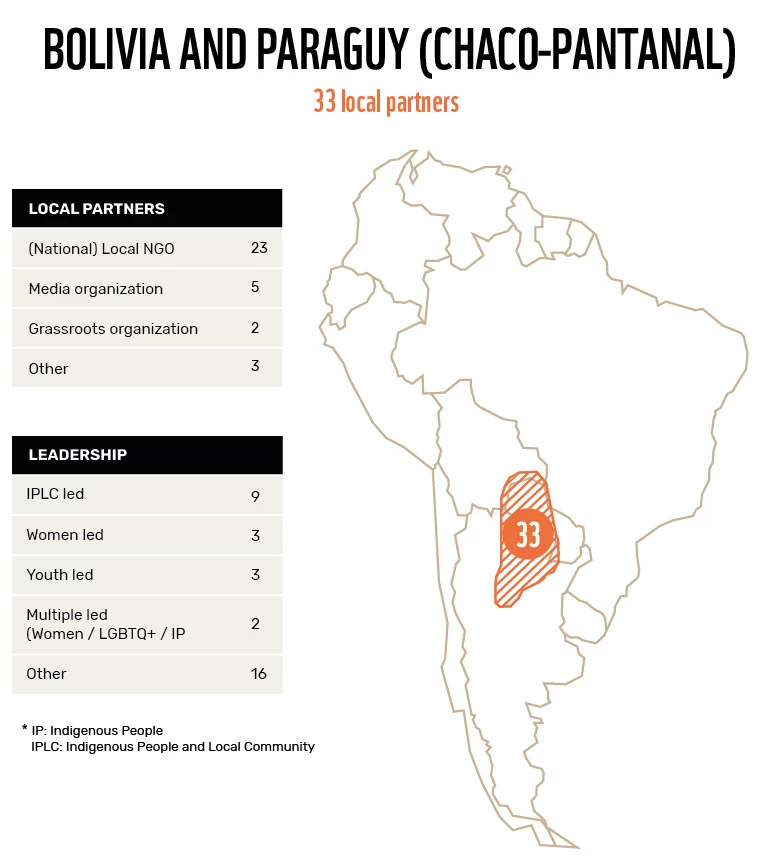Bolivia and Paraguay
Indigenous communities in the Chaco Pantanal struggle to access essential natural resources.
Chaco-Pantanal regions face many climate challenges
The Gran Chaco and Pantanal regions in South America are ecologically diverse areas facing various challenges. The Gran Chaco spans Argentina, Bolivia, and Paraguay, containing vast forests and significant biodiversity. In the last 25 years, the average deforestation in this region was 336,000 hectares per year. On the other hand, the Pantanal is a large wetland shared by Brazil, Bolivia, and Paraguay, renowned for its rich flora and fauna and its role in regulating floods and water quality. The region experiences warmer days and nights than in the past, including temperatures that have never been registered.
Read more about the landscape (PDF).
What is the situation?
The population in the Chaco-Pantanal region, including indigenous communities, rely on diverse livelihood activities such as fishing, agriculture, cattle ranching, hunting, and handicrafts. However, climate change poses increasing challenges, including rising temperatures, shifting seasons, and variable rainfall, impacting water access, food security, and livelihoods. Deforestation (forest clearing for agriculture) is also a major concern. This leads to soil degradation and increased vulnerability to droughts and hampers indigenous communities' access to natural resources.
How can VCA support local partners?
Civil society, particularly marginalized groups, lacks representation and involvement in decision-making processes related to local climate agendas. The Voices for Just Climate Action (VCA) network aims to address these challenges by expanding civic space, identify regional linkages with other movements and develop local solutions for climate change adaptation.
The VCA network consists of a diversity of local organizations in the Chaco-Pantanal regions.

